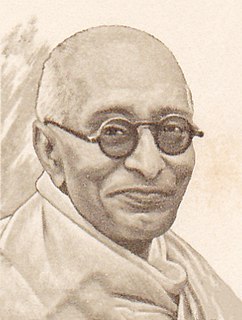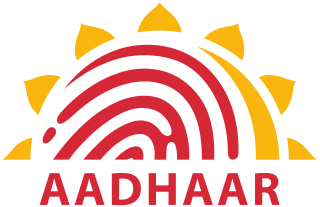Related Research Articles

Southborough is a town in Worcester County, Massachusetts, United States. It incorporates the smaller villages of Cordaville, Fayville, and Southville. Its name is often informally shortened to Southboro, a usage seen on many area signs and maps, though officially rejected by town ordinance. Its population was 10,450 at the 2020 census, in 3,542 households.

The Indian National Congress, colloquially the Congress Party but often simply Congress, is a political party in India with widespread roots. Founded in 1885, it was the first modern nationalist movement to emerge in the British Empire in Asia and Africa. From the late 19th century, and especially after 1920, under the leadership of Mahatma Gandhi, Congress became the principal leader of the Indian independence movement. Congress led India to independence from the United Kingdom, and powerfully influenced other anti-colonial nationalist movements in the British Empire. Due to its enduring history, the Congress is often called the "grand old party".
Kamma is a Hindu caste from South India. The community of Kammas is believed to have originated from agriculturists of the Kammanadu region of the Guntur and Prakasam districts in Andhra Pradesh. Propelled by their military activity in the Vijayanagara Empire, Kammas are believed to have spread out from the region during the Vijayanagara period, followed by some in-migration during the British period and out-migration again during the twentieth century. Today they are regarded as the richest group in Andhra Pradesh and are a dominant caste from Coastal Andhra with socio-economic and political prominence throughout the Telugu-speaking regions of India.

Chakravarti Rajagopalachari, popularly known as Rajaji or C.R., also known as Mootharignar Rajaji, was an Indian statesman, writer, lawyer, and independence activist. Rajagopalachari was the last Governor-General of India, as India became a republic in 1950. He was also the first Indian-born governor-general, as all previous holders of the post were British nationals. He also served as leader of the Indian National Congress, Premier of the Madras Presidency, Governor of West Bengal, Minister for Home Affairs of the Indian Union and Chief Minister of Madras state. Rajagopalachari founded the Swatantra Party and was one of the first recipients of India's highest civilian award, the Bharat Ratna. He vehemently opposed the use of nuclear weapons and was a proponent of world peace and disarmament. During his lifetime, he also acquired the nickname 'Mango of Salem'.

The All-India Muslim League was a political party established in 1906 in British India. Its strong advocacy, from 1930 onwards, for the establishment of a separate Muslim-majority nation-state, Pakistan, successfully led to the partition of India in 1947 by the British Empire.
The Indian Civil Service (ICS), officially known as the Imperial Civil Service, was the higher civil service of the British Empire in British India during British rule in the period between 1858 and 1947.

The Fundamental Rights, Directive Principles of State Policy and Fundamental Duties' are sections of the Constitution of India that prescribe the fundamental obligations of the states to its citizens and the duties and the rights of the citizens to the State. These sections are considered vital elements of the constitution, which was developed between 1947 and 1949 by the Constituent Assembly of India.
The Justice Party, officially the South Indian Liberal Federation, was a political party in the Madras Presidency of British India. It was established on 20 November 1916 in Victoria Public Hallin Madras by Dr C. Natesa Mudaliar and co-founded by T. M. Nair, P. Theagaraya Chetty and Alamelu Mangai Thayarammal as a result of a series of non-Brahmin conferences and meetings in the presidency. Communal division between Brahmins and non-Brahmins began in the presidency during the late-19th and early-20th century, mainly due to caste prejudices and disproportionate Brahminical representation in government jobs. The Justice Party's foundation marked the culmination of several efforts to establish an organisation to represent the non-Brahmins in Madras and is seen as the start of the Dravidian Movement.

The Jallianwala Bagh massacre, also known as the Amritsar massacre, took place on 13 April 1919. A large peaceful crowd had gathered at the Jallianwala Bagh in Amritsar, Punjab to protest against the arrest of pro-Indian independence leaders Dr. Saifuddin Kitchlew and Dr. Satya Pal. In response to the public gathering, the Anglo-Indian Brigadier R. E. H. Dyer surrounded the Bagh with British Indian army units. The Jallianwala Bagh could only be exited on one side, as its other three sides were enclosed by buildings. After blocking the exit with his troops, he ordered them to shoot at the crowd, continuing to fire even as the protestors tried to flee. The troops kept on firing until their ammunition was exhausted. Estimates of those killed vary between 379 and 1500+ people and over 1,200 other people were injured of whom 192 were seriously injured.
General Class/General Category/Open Category is a term used in India to denote castes whose members are on average ahead of other Indians economically and socially. Forward castes account for about 28.8% of the population based on Schedule 10 of available data from the National Sample Survey Organisation 55th (1999–2000) and National Sample Survey Organisation 61st Rounds (2004–05) Round Survey.
The Sachar Committee was a seven-member High Level Committee in India established in March 2005 by then Prime Minister Manmohan Singh. The committee was headed by former Chief Justice of Delhi High Court Rajinder Sachar to study the social, economic and educational condition of Muslims in India. The committee submitted its report in 2006 and the report was available in public domain in 30 November 2006. The 403-page report had suggestions and solutions for the inclusive development of the Muslims in India.

A group representation constituency (GRC) is a type of electoral division or constituency in Singapore in which teams of candidates, instead of individual candidates, compete to be elected into Parliament as the Members of Parliament (MPs) for the constituency. The Government stated that the GRC scheme was primarily implemented to enshrine minority representation in Parliament: at least one of the MPs in a GRC must be a member of the Malay, Indian or another minority community of Singapore. In addition, it was economical for town councils, which manage public housing estates, to handle larger constituencies.

Khan Bahadur Sir Muhammad Habibullah KCSI KCIE was an Indian politician and administrator who served as the Dewan of Travancore from 1934 to 1936.

The first legislative assembly Election to the Madras state based on universal adult suffrage was held in March 1952. This was the first election held in Madras state after the Indian Independence. This election was officially known as the 1951 Madras State Election, even though through delays, actual voting didn't take place until early 1952.

Aadhaar is a 12-digit unique identity number that can be obtained voluntarily by the citizens of India and resident foreign nationals who have spent over 182 days in twelve months immediately preceding the date of application for enrolment, based on their biometric and demographic data. The data is collected by the Unique Identification Authority of India (UIDAI), a statutory authority established in January 2009 by the Government of India, under the jurisdiction of the Ministry of Electronics and Information Technology, following the provisions of the Aadhaar Act, 2016.

The Meghalaya Legislative Assembly is the unicameral legislature of the Indian state of Meghalaya.
The Feetham Function Committee was one of three British committees which sat in Indian from 1918 to 1919, including also the Southborough Franchise Committee and the Committee on Home Administration. The Feetham committee was headed by Richard Feetham, and recommended "the allocation of subjects between the centre and the provinces", as well as "the division of provincial subjects into the Reserved and Transferred categories."
The Committee on Home Administration was one of three British committees which sat in Indian from 1918 to 1919, including also the Southborough Franchise Committee and the Feetham Function Committee. The Home Administration committee was headed by Robert Crewe-Milnes, 1st Marquess of Crewe, and recommended "the reorganistion of the Council of India, the appointment of High Commissioner for India in London, and placing of charges on account of political and administrative work of Indian office on the British exchequer."

Herabai Tata (1879–1941) was an Indian women's rights activist and suffragist. Married in 1895, Tata's husband was progressive and supported the education of his wife and daughter, hiring tutors to help her with her schooling. In 1909, Tata, who was Parsi, developed an interest in Theosophy and within a few years made the acquaintance of Annie Besant. Around the same time, in 1911, she met Sophia Duleep Singh, a British suffragist with Indian heritage, who influenced her development as a suffragist. A founding member and the general secretary of the Women's Indian Association, she became one of the women who petitioned for enfranchisement before the Montagu-Chelmsford investigation in 1917.
The Women's suffrage movement in India fought for Indian women's right to political enfranchisement in Colonial India under British rule. Beyond suffrage, the movement was fighting for women's right to stand for and hold office during the colonial era. In 1918, when Britain granted limited suffrage to women property holders, the law did not apply to British citizens in other parts of the Empire. Despite petitions presented by women and men to the British commissions sent to evaluate Indian voting regulations, women's demands were ignored in the Montagu–Chelmsford Reforms. In 1919, impassioned pleas and reports indicating support for women to have the vote were presented by suffragists to the India Office and before the Joint Select Committee of the House of Lords and Commons, who were meeting to finalize the electoral regulation reforms of the Southborough Franchise Committee. Though they were not granted voting rights, nor the right to stand in elections, the Government of India Act 1919 allowed Provincial Councils to determine if women could vote, provided they met stringent property, income, or educational levels.
References
- ↑ Jawaid Alam (2004). Government and politics in colonial Bihar, 1921-1937. Mittal Publications. pp. 55–56. ISBN 978-81-7099-979-9 . Retrieved 31 May 2011.
- ↑ Lajpat Rai (Lala) (1919). The political future of India. B. W. Huebsch. pp. 231–. Retrieved 31 May 2011.